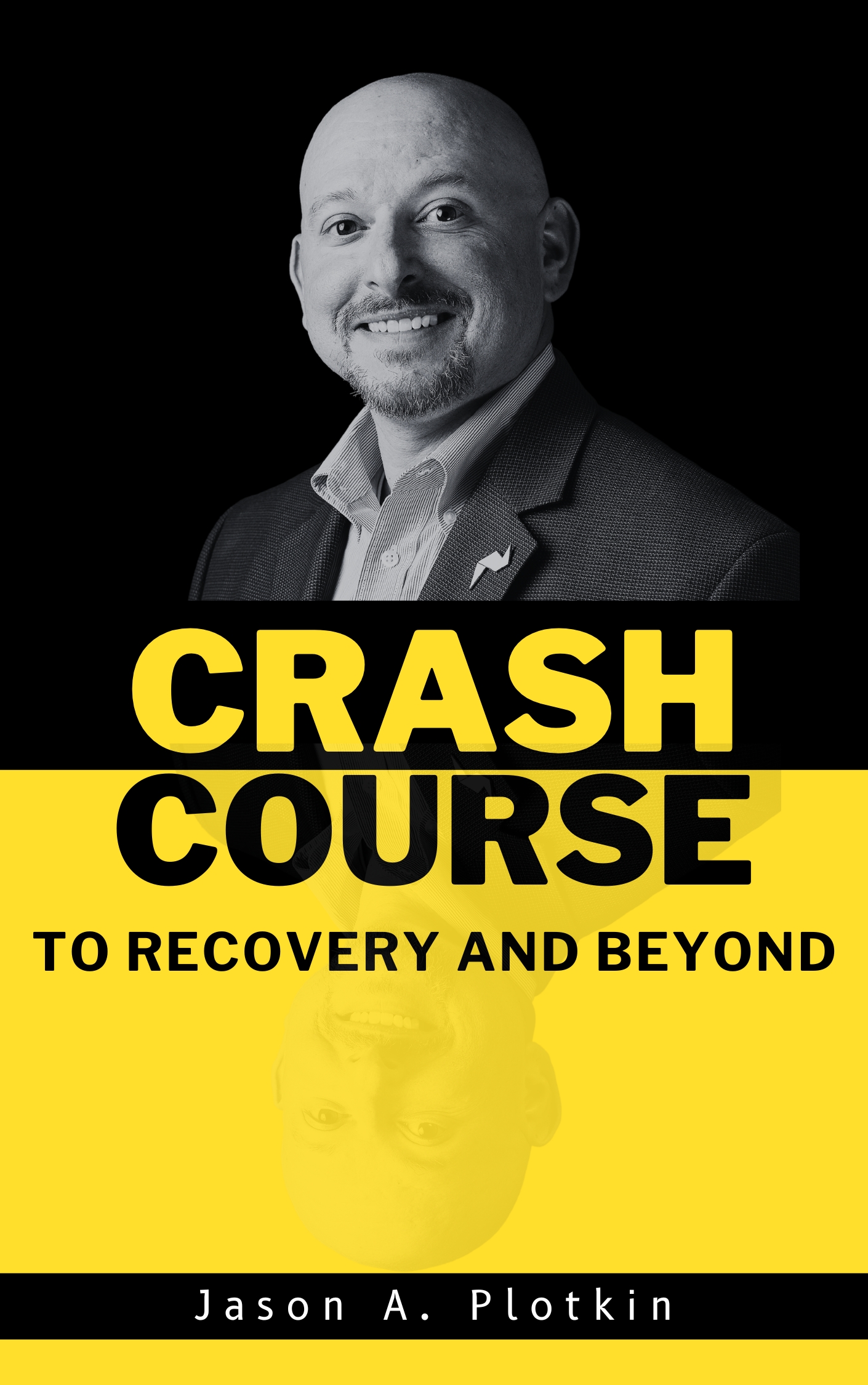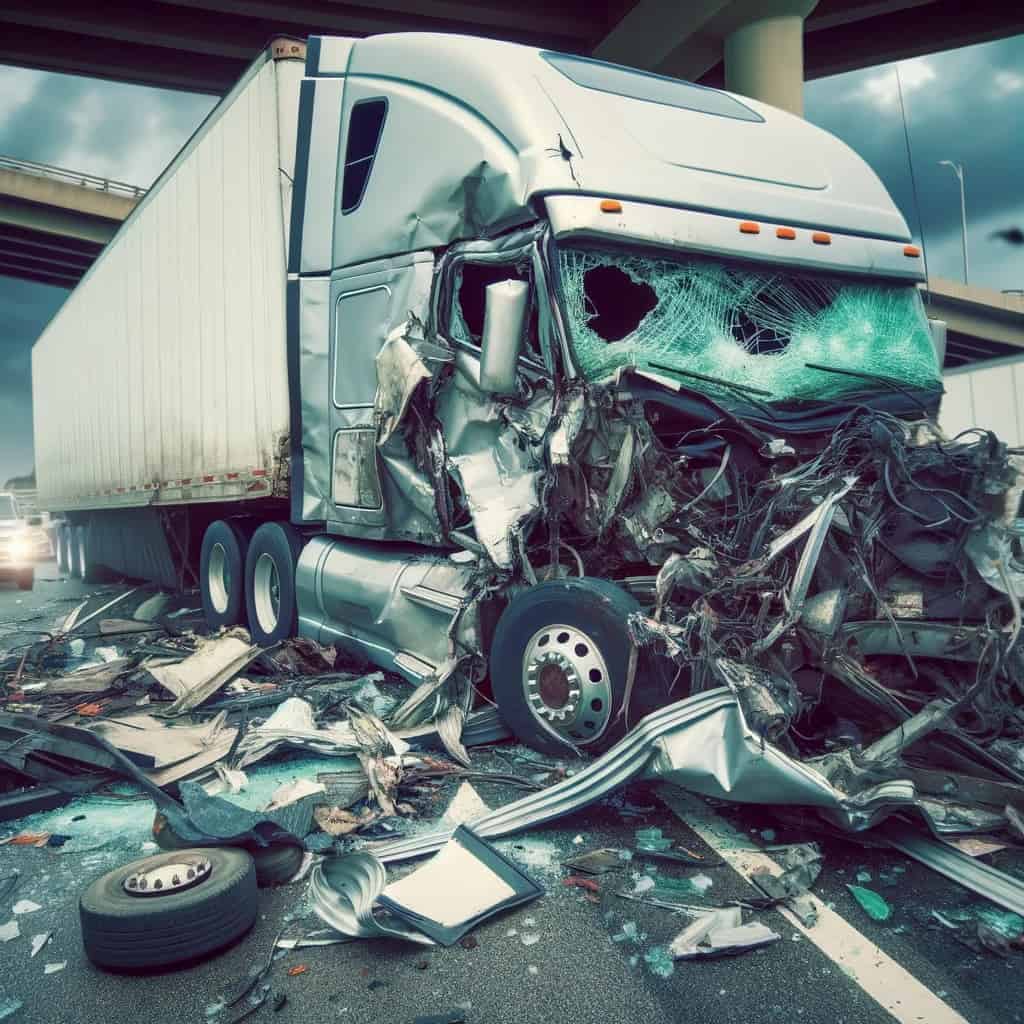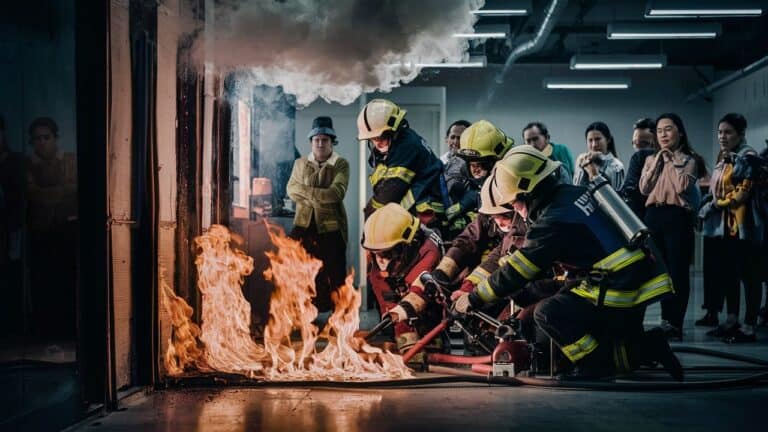Picture this: you’re in a situation where knowing the Evidence Needed to Support a Truck Accident Claim isn’t just useful, it’s crucial. But where do you start? Embarking on this journey, the piece before you serves as a foundational guide for navigating through these intimidating scenarios.
We’re here to navigate you through the maze of collecting crucial evidence, which could be pivotal in either solidifying or dismantling your legal argument. From medical documentation proving your injuries to technological data like black box recordings that pin down what really happened, we cover it all. Plus, get insights on navigating legal representation with truck accident lawyers who know how to fight for what you deserve.
At the conclusion of this article, anticipate having a better grasp of how comprehensive evidence collection can bolster your chances of receiving fair compensation and holding liable parties answerable. Let’s delve into ensuring that your claim remains robust, even under the most rigorous scrutiny, including the evidence needed to support a truck accident claim.
Table Of Contents:
- The Critical Role of Evidence in Baltimore Truck Accident Claims
- Types of Evidence Needed to Support a Truck Accident Claim
- Navigating Legal Representation in Truck Accident Litigation
- Investigative Techniques in Trucking Accidents
- Understanding Federal Regulations Governing Truck Operations
- Maximizing Compensation through Detailed Claim Preparation
- Immediate Steps Following a Truck Accident
- The Significance of Expert Testimonies in Truck Accident Cases
- Conclusion
The Critical Role of Evidence in Baltimore Truck Accident Claims
Imagine a world where big trucks, weighing up to 80,000 pounds, roam the streets without any accountability. Scary, right? That’s exactly why gathering robust evidence is paramount when it comes to truck accident claims. Without sufficient evidence, trucking companies might as well just shrug and refuse to pay what victims truly deserve. Accident Attorney Wrote the Book
Accident Attorney Wrote the Book
Importance of Gathering Comprehensive Evidence
Gathering all relevant data after a truck accident isn’t just important; it’s your shield and sword in the battle for justice. Think about it: every piece of evidence serves as another brick in building your fortress against denial from insurance companies or blame-shifting by the trucking company involved.
This task demands collecting everything from medical records that detail your injuries and their impact on your life to photos from the accident scene showing damages and positions of vehicles. Don’t forget witness statements either – they can provide an unbiased view of how things went down.
Enhancing your case, it’s essential to obtain police reports, as they frequently include impartial assessments conducted at the scene by officers skilled in evaluating these incidents. Together with black box data from the involved trucks which record pre-accident conditions like speed or brake use—these pieces create a comprehensive picture hard for anyone to refute.
If you’re feeling overwhelmed already thinking about diving into this legal battlefield alone—don’t fret. Seeking out seasoned legal help could be one of those game-changing moves ensuring someone experienced is guiding each step towards maximizing compensation through detailed claim preparation while navigating complex federal regulations governing truck operations effortlessly on behalf of you.
Types of Evidence Needed to Support a Truck Accident Claim
Medical Documentation and Its Impact
When a truck weighing up to 80,000 pounds collides with your vehicle, the injuries can be catastrophic. Hence, the significance of medical documents lies in their ability to vividly illustrate your anguish and act as irrefutable evidence of the harm suffered. From initial emergency room reports to ongoing physical therapy notes, every piece of medical documentation helps establish the severity of your injuries.
This documentation transcends mere displays of physical harm; it’s imperative for demonstrating the upheaval these injuries have wrought on your existence and means of sustenance. For instance, if you’ve had to miss work due to hospital stays or doctor visits, pay stubs alongside medical bills become powerful allies in illustrating financial losses resulting from the accident.
Technological Evidence from Black Boxes and Cameras
In today’s tech-savvy world, trucks come equipped with black boxes that record data leading up to an accident. This black box data, combined with camera footage from nearby surveillance or dash cams, provides a factual account of what happened moments before impact. In the quest to assign blame, especially against trucking firms that often dodge accountability for mishaps, these elements become invaluable.
Beyond videos and logs, cell phone records can also play into building a strong case by showing whether distraction played any role in causing the crash. Coupled with dispatch instructions that might indicate pressure on drivers to overlook safety regulations for speedier deliveries adds another layer pointing towards negligence.
Navigating Legal Representation in Truck Accident Litigation
Finding the right truck accident lawyer is like picking a quarterback for your football team. Selecting a lawyer for your truck accident case is akin to choosing a seasoned quarterback, one who’s adept at the game, swift in making crucial calls under duress, and ultimately guides you towards triumph. In truck accident cases, that victory means getting the compensation you deserve.
Legal representation goes beyond just showing up in court. Crafting a solid case is akin to laying down a robust foundation, brick by brick. This starts with collecting all necessary evidence – think of it as gathering your playbook before the big game. Essential elements include medical documentation to prove injuries, technological data such as black box recordings and camera footage which serve as unbiased witnesses to what happened, police reports that provide an official account of events at the scene, phone records that could indicate distracted driving, and much more.
The complexity doesn’t stop there; understanding federal regulations governing truck operations is crucial too. Your legal team must be well-versed in these laws because they often play a pivotal role in proving liability. Free case evaluations offered by seasoned attorneys are excellent opportunities to assess how prepared they are to handle your specific situation.
Hiring experienced legal representation ensures not only that you have someone skilled in managing this intricate process but also significantly increases your chances of securing fair compensation for any damages or injuries sustained during a truck accident—allowing you peace of mind while focusing on recovery.
Investigative Techniques in Trucking Accidents
Gathering evidence after a truck accident is like piecing together a giant jigsaw puzzle. But instead of having a picture to guide you, investigators rely on various types of data and records.
Delving into Driver’s Logs and Dispatch Records
The heart of any truck accident investigation often lies in the driver’s logs and dispatch instructions. These documents are gold mines for information about the hours a driver spent on the road before an incident occurred. They can reveal if fatigue might have played a role due to violations of motor carrier safety regulations. For instance, federal law caps driving time but some drivers, under pressure to meet deadlines, might overstep these bounds.
Beyond mere hours logged, dispatch instructions provide context about the trip itself. They could show that unrealistic schedules were set by the trucking company or dispatcher, pushing drivers beyond safe limits.
To strengthen your case further contact Pinder Plotkin, which offers free consultations for those involved in accidents seeking legal advice.
Evidence collection doesn’t stop with paperwork; it extends into technology too. Trucks equipped with black boxes – much like airplanes – record vital data points leading up to an accident: speed changes, brake application times and even engine performance issues that could indicate maintenance neglect from weigh stations reports or inspection records from recent checks at service centers across states they’ve traveled through – all this technological evidence forms pieces of proof essential when proving fault against powerful trucking companies who often deny responsibility unless confronted with undeniable facts collected diligently by experienced attorneys familiarized deeply within transport industry practices ensuring victims receive fair compensation without undue hassle during already difficult times following traumatic incidents caused not just visible injuries but financial losses too owing significant medical bills among other expenses incurred throughout recovery processes making comprehensive investigations paramount success any injury claim brought forth courtrooms across country.
Gathering evidence in truck accidents is all about digging deep into driver logs, dispatch records, and tech like black boxes to piece together what happened. This data can show if a driver was overworked or a truck poorly maintained. For solid proof and help fighting big trucking companies, consider getting an expert attorney on your side.
Understanding Federal Regulations Governing Truck Operations
Federal Motor Carrier Safety Regulations (FMCSRs) play a critical role in the trucking industry, acting as the backbone for safety and compliance. Spanning the gamut from the number of hours a driver can be behind the wheel to how well a truck must be kept up, these rules encapsulate it all.
The importance of these safety regulations cannot be overstated. By setting a universal framework of guidelines, they significantly diminish the likelihood of mishaps, harm, and loss of life on our thoroughfares. But what happens when there’s a failure to comply?
Safety Regulations Compliance
Adhering to the Federal Motor Carrier Safety Regulations goes beyond mere penalty evasion; it fundamentally preserves human life. When trucking companies or drivers cut corners on safety measures like regular vehicle inspections or adhering to driving hour limits, they put everyone at risk. Discoveries from probes into truck mishaps frequently pinpoint violations as key factors leading to the incidents.
In the aftermath of an accident involving commercial trucks, law enforcement agencies and legal teams will closely examine adherence—or lack thereof—to these federal guidelines as part of determining liability. This scrutiny often involves reviewing logbooks for hours-of-service violations, maintenance records for evidence of neglect, and any other documentation relevant to FMCSR compliance.
Impact on Liability and Claim Outcomes
A thorough understanding of FMCSR is crucial not only for those within the trucking industry but also for accident victims seeking compensation through personal injury claims. Court or settlement discussions may see major shifts in fault assignment due to infractions, underscoring the intricate dance between adherence and consequence.
This link between regulation non-compliance and increased liability underscores why victims need skilled legal representation familiar with both state laws and federal transportation statutes—a combination found at firms specializing in such cases like Rice Law Firm. Attorneys adept in their field leverage this insight, constructing robust arguments by pinpointing how lapses in adhering to federal mandates played a role, whether directly or tangentially, in precipitating mishaps.
Understanding and proving FMCSR violations can make or break a truck accident claim, emphasizing the need for expert legal help to navigate these complex regulations.
Maximizing Compensation through Detailed Claim Preparation
When you’re hit by a truck weighing up to 80,000 pounds, the financial and emotional toll can be massive and strong evidence is needed. Getting what you deserve from trucking companies often hinges on proving damages meticulously. Here’s how detailed claim preparation makes a difference.
Documenting Financial Losses for Maximum Compensation
The road to securing maximum compensation starts with documenting every penny lost due to the accident. This includes not just medical bills but also pay stubs reflecting missed workdays and receipts for any out-of-pocket expenses related to your recovery. A thorough documentation strategy ensures no financial stone is left unturned.
In addition to the initial documentation, securing proof of possible forthcoming financial setbacks plays a crucial role in strengthening your claim. This might involve expert testimony regarding ongoing care or adjustments needed at home or work due to injuries sustained in the accident.
Gathering Robust Evidence of Injuries
Injury claims thrive on concrete proof—visible injuries documented via medical records are irrefutable anchors that tie subjective pain to objective reality. But it’s not just about showcasing current harm; demonstrating how these injuries will impact your life down the line plays a crucial role as well.
Beyond visible wounds, keeping a diary detailing daily struggles post-accident can provide compelling narrative evidence supporting how deeply an accident has affected your quality of life.
Navigating this overwhelming journey, keep in mind: robust evidence collection and meticulous documentation aren’t optional—they’re essential steps toward justice and fair compensation after being involved in such traumatic incidents.
Contact Pinder Plotkin today for comprehensive help maximizing your claim outcome through diligent preparation and experienced legal representation.
Immediate Steps Following a Truck Accident
Securing the Scene and Collecting Initial Evidence
The moment after a truck accident can be chaotic, but taking quick action to preserve evidence is crucial. Your first move should be making sure everyone is safe; then, start documenting everything. Quickly grab your phone and snap shots from various perspectives of the involved vehicles, highlighting all noticeable damages or roadway factors that played a role in the mishap.
Gathering contact information from witnesses at the scene can also provide invaluable insights later on. Remember, trucks can weigh up to 80,000 pounds—understanding how such massive vehicles interact with smaller ones in accidents is vital for building your case.
Last but not least, note down anything unusual you observe about the truck driver’s behavior—it could hint at factors like fatigue or distraction contributing to the crash.
The Role of Police Reports in Substantiating Claims
Contacting law enforcement immediately ensures an official record of the incident through an accident report—a key piece of documentation when dealing with insurance companies and possibly during litigation. Officers will document statements from both parties involved and any witnesses, providing an objective overview of events which helps establish fault clearly.
Securing this report from the police acts as crucial leverage when you’re up against formidable trucking firms that might balk at offering just restitution in the absence of solid proof supporting your stance. It solidifies your account by aligning it with an authoritative source recognized by courts and insurers alike.
For anyone navigating these turbulent waters post-accident, securing expert legal guidance is essential for interpreting complex laws around truck accidents effectively while ensuring every critical step towards preserving evidence isn’t missed.
The Significance of Expert Testimonies in Truck Accident Cases
Medical Experts on Injury Impact
In the aftermath of a truck accident, victims often suffer from severe injuries that can drastically alter their daily lives. Here’s where medical experts come into play. Medical professionals go beyond healing wounds; they offer vital testimony in court, shedding light on the profound effects injuries have on daily living and work, which plays a pivotal role in determining compensation. When they delve into and bear witness to the severity of harm, these professionals shed light on how such damage can drastically alter someone’s existence over time.
This testimony is vital for understanding how an accident has affected someone’s ability to work or perform day-to-day activities, thus influencing compensation amounts significantly. Additionally, insights from specialists into anticipated medical treatments guarantee that financial settlements encompass the full spectrum of forthcoming costs tied to the mishap.
Accident Reconstruction Specialists
Another key player in building a strong case are accident reconstruction specialists. Leveraging every scrap of evidence, from surveillance captures to vehicle telemetry and official narratives, these savants meticulously reconstruct the sequence of events leading up to a mishap.
In cases where determining who’s to blame gets tricky, their in-depth scrutiny often becomes the key factor in pinpointing responsibility amidst the convoluted circumstances. For instance, if a trucking company claims no responsibility for an incident due partly because their driver adhered strictly according to dispatch instructions or followed all federal motor carrier safety regulations meticulously; reconstructions could demonstrate otherwise by revealing overlooked details like unsafe driving conditions or violations missed at first glance.
For anyone looking forward toward pursuing justice after being involved in such incidents knowing what types expertise may bolster your argument makes navigating through this challenging process slightly easier with professional guidance available here.
Conclusion
Acquiring the appropriate evidence is paramount for success. Securing essential proof to substantiate a claim arising from a truck accident is not just important, but absolutely critical. Medical records, black box data, and police reports are vital components of this puzzle, all part of the evidence needed to support a truck accident claim.
Next up, understand that technology like cameras can play a huge role. These elements provide a vivid snapshot of the events as they unfolded during the collision.
Don’t forget: legal expertise matters. Truck accident lawyers can navigate through complex claims with ease.
Last but not least, always act swiftly after an accident to secure all available evidence before it’s too late.
To wrap it up, having concrete proof and a reliable squad in your corner pretty much sets you on the path to rightfully reclaiming what’s owed for your pain and setbacks. Take this wisdom to heart as you lay the foundation for a robust case, step by careful step.





